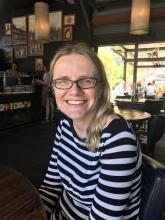Summer School 2023: Causal analysis methods: beyond standard regression
In this era of “data science” it is vitally important to clearly articulate the questions that we ask of data, understand the challenges inherent in answering different types of questions, and ensure that our analysis methods are suitably aligned. An overwhelming number of clinical and public health research studies ask causal (“what if…”) questions, about the effects of treatments, policies, behaviours and other exposures on health outcomes. Answers to these questions are key to guiding decision making in health policy and practice when the goal is to improve patient outcomes and population health. Causal inference requires carefully structured reasoning to guide appropriate statistical analysis.
This workshop provides an overview of key concepts relating to the design of causal analyses and reviews the standard regression method for estimating causal effects, before moving on to the main focus which is on two alternative estimation methods that are less prone to bias: g-computation and inverse probability (or “propensity score”) weighting (IPW). Lectures and tutorials will help ground understanding of these methods, emphasising underlying intuition and assumptions, whilst a hands-on computer practical (in R and Stata) will cover their implementation in practice. All lectures and tutorials include illustrations from real-world observational epidemiological studies. Electronic copies of presentation materials will be made available online.
Prerequisites: The target audience is statisticians and researchers with some statistical background, including some knowledge of regression methods. It is desirable that participants are familiar with the distinction between the three types of research question (description/prediction/causal inference) and the target trial framework for defining causal effects and designing causal analyses (such as covered in the course "Observational studies: Modern concepts & analytic methods(link is external)" delivered by the Clinical Epidemiology and Biostatistics Unit (CEBU) at the Melbourne Children’s campus).
For the computer practical, students must also have a sound working familiarity with Stata or R and have the corresponding software installed on their computer or laptop.









